 Contemporary culture has eliminated both the concept of the public and the figure of the intellectual. Former public spaces both physical and cultural are now either derelict or colonized by advertising. A cretinous anti-intellectualism presides, cheerled by expensively educated hacks in the pay of multinational corporations who reassure their bored readers that there is no need to rouse themselves from their interpassive stupor. The informal censorship internalized and propagated by the cultural workers of late capitalism generates a banal conformity that the propaganda chiefs of Stalinism could only ever have dreamt of imposing. Zer0 Books knows that another kind of discourse intellectual without being academic, popular without being populist is not only possible: it is already flourishing, in the regions beyond the striplit malls of so-called mass media and the neurotically bureaucratic halls of the academy. Zer0 is committed to the idea of publishing as a making public of the intellectual.
Contemporary culture has eliminated both the concept of the public and the figure of the intellectual. Former public spaces both physical and cultural are now either derelict or colonized by advertising. A cretinous anti-intellectualism presides, cheerled by expensively educated hacks in the pay of multinational corporations who reassure their bored readers that there is no need to rouse themselves from their interpassive stupor. The informal censorship internalized and propagated by the cultural workers of late capitalism generates a banal conformity that the propaganda chiefs of Stalinism could only ever have dreamt of imposing. Zer0 Books knows that another kind of discourse intellectual without being academic, popular without being populist is not only possible: it is already flourishing, in the regions beyond the striplit malls of so-called mass media and the neurotically bureaucratic halls of the academy. Zer0 is committed to the idea of publishing as a making public of the intellectual.
It is convinced that in the unthinking, blandly consensual culture in which we live, critical and engaged theoretical reflection is more important than ever before.
Exploring The Line
There is nothing that is major or revolutionary except the minor. Gilles Deleuze and Flix Guattari The twentieth-century architect Mies van der Rohe, whose two 1950 Lake Shore high-rises appear on the cover of this book, famously declared, Architecture starts when you carefully put two bricks together. This tenet of modern design, along with Mies van der Rohes other famous precept, Less is more, has served as a model for the way I approached the composition of
LACONIA, for on Twitter, a line (140 characters) is all you have to work with. Unlike visual art or literature, architecture, like mass media and film, the subject of this book, is part of our daily experience, or, as the architectural photographer Julius Shulman put it, architecture affects everybody. Even the massive and overpowering skyscraper is an example of the laconic or elemental if we see it as a brick by brick process.
The original structural definition of the word skyscraper, which was based on the early see-through steel skeleton frames of skyscrapers (as opposed to the impermeable reinforced concrete used to build skyscrapers today), can be taken as another leitmotif running through this collection. For, LACONIA is, in essence, an architecture of thinking. It is also a book that shows its skeleton. That tackles the multi-media landscape as a language pattern rather a material phenomenon. In some ways, I think I was born to write this kind of book because for me writing always starts with: a line, a phrase, a fragment. Modeled on the aphorism, while updating and tailoring it to film and pop culture, the goal in LACONIA was to zoom in rather than out, to write in close-ups, so that every word, to quote Ezra Pound, could become charged with meaning.
Like the aphorism, which according to James Geary in The World in a Phrase: A Brief History of the Aphorism, must be brief, definitive, personal, philosophical, have a twist, and reveal some larger truth, each tweet in LACONIA is a miniature exegesis; an appraisal of the world through film and media since our understanding of the world has become increasingly, if not entirely, shaped and mediated by both. Given that LACONIA has more in common with poetry and prose, with a tradition of compressed writing, its a book of cultural criticism that also works as a study in the language and Zen-like practice of observation. LACONIA doesnt just dramatize the thinking process. It dramatizes the act of thinking through film. For me, film isnt simply what I think about or write about, its the medium through which I discover and articulate what I think. Writer and filmmaker Jean-Pierre Gorin notes a similar preoccupation in Chris Markers La Jete (1962) and Sans Soleil (1982) (two films that have greatly influenced this collection), stating that Markers work is about How you put together a thought, a life.
How you interact with the elements that are given to you. As a teenager, I read Roland Barthes A Lovers Discourse: Fragments, Sol Lewitts essay on conceptual art as mental process, Paragraphs on Art, and Baudelaires prose sketches Paris Spleen, which have no particular order. No beginning or end. That can be read simply as thoughts. I was also interested in the phraseologies of multi-media artists like Barbara Kruger and Jenny Holzer, whose work blurs the line between the aphorism (subversive, mindful) and the clich (reductive, mindless), and to whom James Geary coincidentally devotes the final chapter of The World in a Phrase, aptly titled, In the Beginning Was the WordAt the End Just the Clich: The Aphorism Today. But my interest in laconic style, or minimalist critique, crystallized when I saw Alfredo Jaars installation Lament of The Images at Documenta XI in 2002.
Jaar, a documentary photographer who uses new mediums of representation, and who like Barthes opts to write about images rather than reproduce them, states that with the overproduction of images weve become oblivious to pictures. This indifference results in what Jaar calls a blindness effect. Likewise, LACONIA is in part a lament of the overproduction of language, a communication overload we're incapable of keeping up with or making sense of. Where nonstop ideas and a cacophony of innermost thoughts scattered all over the Web are often likely to be unread and unheardthe proverbial tree in the forest. In Lament of The Images Jaar chooses to make his photojournalism textual rather visual, offering the public an alternative opportunity to reflect and meditate upon the lack of photographs in order to restore their lost sight, in the same way that I use laconic language, or micro-criticism, to restore (at least for myself) some of the concentration, economy, and attention to language weve lost. The gradual accumulation and evolution of ideas in LACONIA is also an attempt at slowing down the enormous production of ideas.
While the Internet gives all of us the opportunity to communicate and create, to comment and respond, its also obscured a more important criterion: What is it that we need to say and what is it that we dont? What helps us with our work and our life and what distracts us from it? What is necessary and what simply clutters up the world? In other words, how much art do we really need? In my case, I avoided tweeting arbitrarily or simply churning out a collection of tweets that would result in a book. Instead, I wrote and crafted each entry as though it was for and part of a book, rather than the other way around. This gave my entries a larger purposean essential quality. LACONIA contains a nexus of themes. Rather than expanding upon one idea at length, it connects the dots, using a hybrid of sources to build a mosaic of patterns that emphasizes and explores the correlations and juxtapositions between films. How you put together a thought, a liferather than simply an essay or a bookand how you think on a day-to-day basis, in an age that leaves you with very little time or space to do either, is ultimately the focus of LACONIA. Put simply, this collection concerns the person, not just the work, for as Joe Baltlake writes on his blog, The Passionate Moviegoer, The way a person connects the lines; the way he or she responds to a movie, says a lot about them.
Finally, LACONIA resists the bigger is better, more is more, ethos, and instead builds a scope of concerns and subjects with small gestures. As a tangible object made using an immaterial form (Twitter warns users that after 8,000 tweets, their tweets may disappear. Mine vanished temporarily after only a 1,000),
Next page

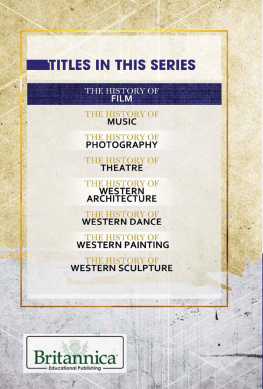
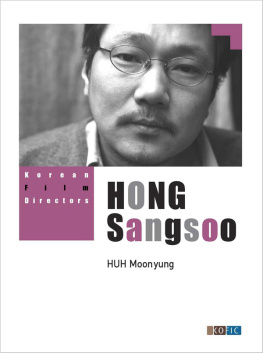
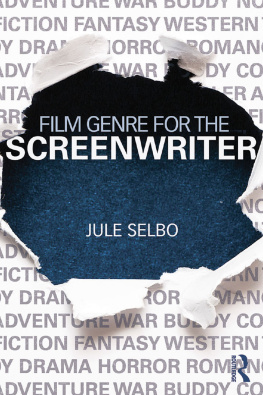
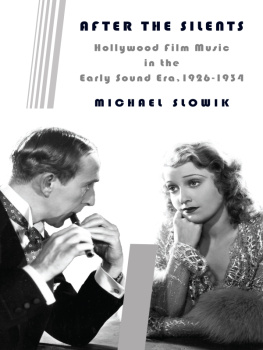
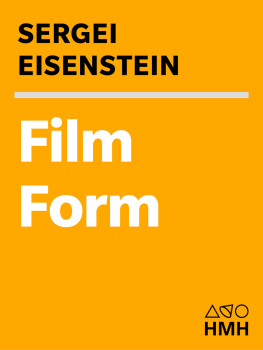
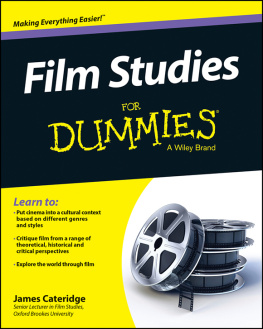
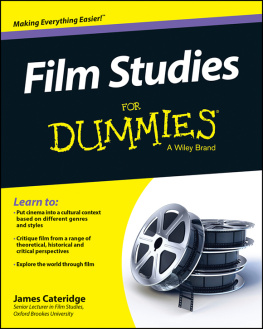
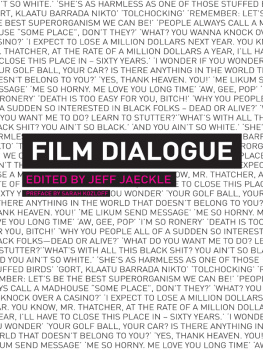
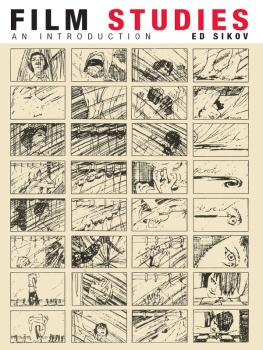
 Contemporary culture has eliminated both the concept of the public and the figure of the intellectual. Former public spaces both physical and cultural are now either derelict or colonized by advertising. A cretinous anti-intellectualism presides, cheerled by expensively educated hacks in the pay of multinational corporations who reassure their bored readers that there is no need to rouse themselves from their interpassive stupor. The informal censorship internalized and propagated by the cultural workers of late capitalism generates a banal conformity that the propaganda chiefs of Stalinism could only ever have dreamt of imposing. Zer0 Books knows that another kind of discourse intellectual without being academic, popular without being populist is not only possible: it is already flourishing, in the regions beyond the striplit malls of so-called mass media and the neurotically bureaucratic halls of the academy. Zer0 is committed to the idea of publishing as a making public of the intellectual.
Contemporary culture has eliminated both the concept of the public and the figure of the intellectual. Former public spaces both physical and cultural are now either derelict or colonized by advertising. A cretinous anti-intellectualism presides, cheerled by expensively educated hacks in the pay of multinational corporations who reassure their bored readers that there is no need to rouse themselves from their interpassive stupor. The informal censorship internalized and propagated by the cultural workers of late capitalism generates a banal conformity that the propaganda chiefs of Stalinism could only ever have dreamt of imposing. Zer0 Books knows that another kind of discourse intellectual without being academic, popular without being populist is not only possible: it is already flourishing, in the regions beyond the striplit malls of so-called mass media and the neurotically bureaucratic halls of the academy. Zer0 is committed to the idea of publishing as a making public of the intellectual.